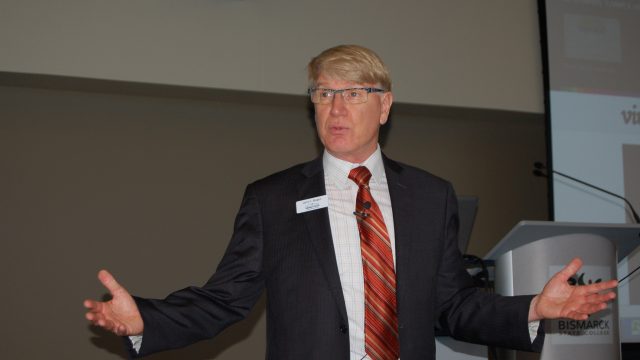Rod St. Aubyn: The Ball Is In Higher Ed's Court

A lot has been happening in the legislature lately dealing with higher education. As SAB has reported recently, the House approved a bill giving the legislature authority over tuition. Controversy has erupted over a bill giving students the right to have an attorney assist them in campus proceedings against the student and whether a University System administrator’s opposition to the bill was based on his own view or that of the Board. At the same time, the Senate has to confirm 4 Higher Education Board appointees; two with terms beginning July 1, 2014 and two with terms beginning July 1, 2015.
To complicate things a bit more, one of the Governor’s appointees for the July 1, 2014 positions, Kirsten Diederich (the Board President), decided to resign after numerous reports showed dissatisfaction among many senators with the University System and the fact that she faced a very uncertain fate from an expected tough Senate confirmation hearing.
Recently the paper identified applicants for the vacant board position. And the committee responsible for narrowing the applicants for the Governor’s selection is organized. So another confirmation hearing for the vacant appointee is imminent. The comment I have heard the most around the Capitol is “who would want to serve on that Board?”
[mks_pullquote align=”right” width=”300″ size=”24″ bg_color=”#000000″ txt_color=”#ffffff”]With reports of numerous open record/open meeting violations noted by the Attorney General, the controversy with the enrollment issues at Dickinson State, the financial mess at the DSU Foundation office, UND REAC contract, the assumption of the Sanford Nursing program without legislative consultation/approval, NDUS staffing issues (Tim Carlson, Chief Auditor, and Kirsten Franzen, Compliance Officer) and numerous other issues, it is obvious that many legislators are not happy with the overall handling of higher education.[/mks_pullquote]
The outcome of these bills that I mentioned earlier and the confirmation hearings are unknown, but based on my own conversations with legislators, one thing is abundantly clear. The Legislature wants to see changes in the University System. With reports of numerous open record/open meeting violations noted by the Attorney General, the controversy with the enrollment issues at Dickinson State, the financial mess at the DSU Foundation office, UND REAC contract, the assumption of the Sanford Nursing program without legislative consultation/approval, NDUS staffing issues (Tim Carlson, Chief Auditor, and Kirsten Franzen, Compliance Officer) and numerous other issues, it is obvious that many legislators are not happy with the overall handling of higher education.
And to top off all of this, the Board is actively looking for a new University System Chancellor. One Senate member of the committee that is considering the confirmation of board appointee Kevin Melicher told me that one concern that Senators have is, “if he is confirmed this time, will the legislators be faced with the same issues and questions when he seeks his second term in 4 years.” In other words, will anything change with the University System and the Board in the future?
In all fairness to the Board, I don’t think that the general public nor the legislature really have a shared vision of what should happen with higher education in North Dakota. Just take governance as one example. Do the public and the legislature want a strong Chancellor form of governance? They strongly resisted Chancellor Shirvani’s style of governing from the top. Other people have been outspoken about their opposition to the power assumed by University presidents, in particular at UND and NDSU. So exactly what do the public and key policymakers really want; a strong Chancellor and System Office or strong presidents at each campus, or something that is a blend of both?
If I were to advise the Board, I would strongly suggest that they set up many public input sessions throughout the state and be willing to listen to their constituents. They need to accept blame for the public’s and legislators’ dissatisfaction. They must be willing to learn from this public criticism and
find ways to earn the public’s support. They also need to do the same thing with state legislators.
They need to have a legislative liaison position that works directly with legislators as a “contact” person who legislators trust. This would not need to be an additional position, but taken from the positions that they currently have. You could argue that this should be the Chancellor, but I am not sure that the Chancellor will have the time to dedicate to this endeavor. Probably the most important thing that the State Board of Higher Education needs is leadership. I hope that those appointed by the Governor and ultimately confirmed by the Senate will take their responsibilities seriously. If not, expect even more restraints and changes being made by future legislatures. As the saying goes, “the ball is in their court.”




